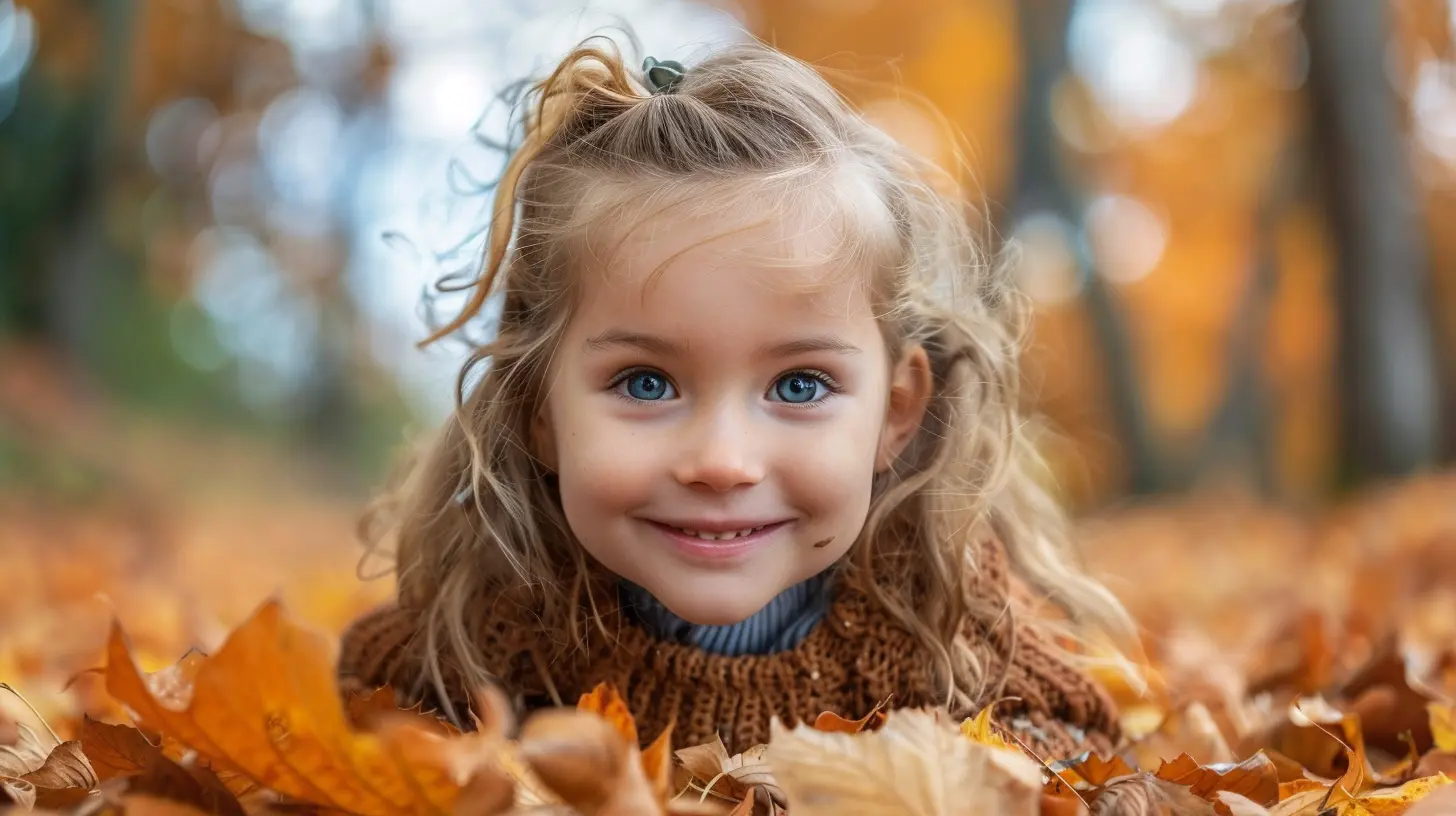Transforming a Me-Centered Mindset into a Grateful Heart
27 November 2025
Let’s face it—parents have a front-row seat to the "me, me, me" stage that kids seem to be born into. From the moment they can talk, toddlers love to say “mine!” It can be cute at first, but as they grow, a me-centered mindset can morph into entitlement, selfishness, and even a lack of empathy.
Here's the good news: that self-focused mindset isn't permanent. With patience, intentional parenting, and a sprinkle of grace, you can guide your little one toward something deeper and far more rewarding—a grateful heart.
In this article, we’re unpacking how to shift that inward focus to outward appreciation. Not just for your child, but for yourself too. Because let’s be real—parenting is as much about our growth as it is about theirs.
Why Gratitude Matters More Than Ever
Picture this: your kid just opened a birthday gift and immediately asks, “Is that it?” We’ve all seen it, and yep, it stings a little.Gratitude is more than just saying "thanks." It's about seeing the good in what we have rather than dwelling on what we don’t. It’s the key to long-lasting happiness, deeper relationships, and emotional resilience.
Kids (and adults) with a grateful outlook tend to be more optimistic, less anxious, and better equipped to handle life’s ups and downs. Think of gratitude as emotional armor—it doesn’t block pain, but it helps soften the blow.
Understanding the Me-Centered Mindset
Before you can shift the mindset, it helps to understand where it comes from.A me-centered mindset is pretty normal at an early age. Young children are wired to focus on their own needs. It’s survival-based. But if that mindset sticks around too long, it can turn into chronic selfishness and a lack of emotional maturity.
And honestly? This isn’t just a kid thing. We adults default to “me mode” too—especially in a world filled with selfies, curated social feeds, and instant gratification.
Signs Your Child (or You) Might Be Stuck in Me Mode
Let’s put the mirror up for a second. These are a few telltale signs that me-centered thinking might be taking the wheel:- Constant complaints, even when things are going well
- A sense of entitlement (“I deserve this” attitude)
- Difficulty sharing or giving without expecting something in return
- Feeling wronged when things don’t go their way
- Focused more on what they lack than what they have
Sound familiar? Yep, same here. But don't worry—now that we see it, we can start to shift it.
The Power of Modeling Gratitude First
Here's the truth bomb: kids learn more from what we do than what we say.If we want to raise grateful kids, we need to show them what gratitude looks like in action. That doesn’t mean being perfect. It means letting them see you acknowledge the small joys, say thank you, and express contentment even when life isn't ideal.
Start with your everyday language:
- “I’m so thankful we had time to eat dinner together.”
- “Wow, what a beautiful sunset. Isn’t that amazing?”
- “I really appreciate how you helped your little brother.”
Kids are little sponges. When they hear you appreciating life, they’ll start soaking that up.
Creating a Culture of Gratitude at Home
Think of your home like a greenhouse—it's the perfect place to nurture grateful thoughts and behaviors.1. Daily Gratitude Habits
Make “what are you thankful for?” part of your daily rhythm. You can do this around the dinner table, during bedtime routines, or even while brushing teeth. Keep it simple and authentic.Even better: join in. Let them hear you reflect on your own gratitude.
2. Praise Effort, Not Stuff
Instead of focusing on achievements or material things, praise kindness. Acknowledge moments when your child shows generosity, empathy, or a willingness to help.Say things like:
- “I loved how you shared your toy today. That was thoughtful.”
- “It made me so proud when you said thank you without being reminded.”
3. Gratitude Journals for All Ages
Don't underestimate this simple tool. Journaling isn’t just for grown-ups. Even young kids can draw pictures of things that made them happy. Older kids can jot down three things they're thankful for each day.Use fun prompts like:
- "What made you smile today?"
- "Who helped you today?"
- "What’s something you’re glad you have?"
Teaching Kids That Less Can Be More
We live in a culture that screams "more is better." But guess what? Gratitude grows best in simplicity.Teaching kids to find joy in the little things can re-wire their brains for contentment. You can:
- Go on nature walks and point out simple beauties.
- Limit excessive rewards or gifts to help reset expectations.
- Let them earn things, so they appreciate the effort it takes.
When they realize happiness isn’t tied to stuff, their hearts open to gratitude.
Shifting the Focus from “Me” to “We”
Let’s talk empathy. It's one of gratitude’s best friends.Encourage Acts of Service
Let your child pick out canned goods to donate. Have them help you drop off cookies at a neighbor’s house. Involve them in real moments of giving—it builds compassion and perspective.Teach Perspective Through Stories
Books and stories can help kids understand different lives. Choose stories that show characters from different backgrounds or those who’ve overcome struggles. It opens their world and helps them see beyond their own.Helping Teens Develop Grateful Hearts
Teenagers—yes, even them—can grow in gratitude. But approach it with patience and authenticity. They're allergic to anything fake or preachy.Talk about money, time, and effort. Let them see what goes into making things happen. Help them get jobs, earn money, and discover that fulfillment comes from doing, not receiving.
Encourage volunteer work or community projects. These aren't just resume builders—they're real-life lessons in empathy and appreciation.
Don't Forget: Parents Need Gratitude Too
We’re doing this transformation alongside our kids. Let's be honest—it’s easy to get wrapped up in what we wish we had. More time. More sleep. More help.But when we start noticing the good stuff, even in the chaos, everything shifts. Take moments throughout the day to pause and give thanks—for the giggles, the hugs, the quiet (however rare).
A grateful parent is a powerful role model.
When Gratitude Doesn't Come Naturally
What if your child flat-out refuses to be thankful?That’s okay. Gratitude is a practice, not a personality trait. It doesn’t come overnight.
Stay consistent. Keep modeling. Don't force it—but keep offering opportunities for them to notice the good around them. Eventually, those seeds take root.
Remember, your child's development is a long game. You're playing the role of both gardener and cheerleader.
Tools and Activities to Cultivate Gratitude
Here are a few fun—and practical—ideas you can start using right away:- Gratitude Jar: Write little thankful notes each day and read them together at the end of the week.
- Thank You Cards: Get some blank cards and encourage your child to write thank-you notes to teachers, family, or friends.
- “Highs and Lows” Game: At dinner or bedtime, take turns sharing a high and low from the day. It opens the door to reflect, empathize, and appreciate.
- Acts of Kindness Challenge: Create a checklist of simple ways your child can help others.
Make it fun, light, and not a chore. The goal is to stir up joy, not guilt.
Final Thoughts: It's a Journey, Not a Flip Switch
Transforming a me-centered mindset into a grateful heart isn't about instant results. It's about laying brick by brick, moment by moment, until something beautiful rises from those daily efforts.You won’t always get it right. Your kids won't always respond the way you hope. But with consistency, empathy, and a lot of sincere connection, you’ll begin to see small changes that lead to big heart shifts.
And in all honesty? That’s something to be really thankful for.
all images in this post were generated using AI tools
Category:
Teaching GratitudeAuthor:

Max Shaffer
Discussion
rate this article
2 comments
Quorra Love
Thank you for this insightful perspective; it’s a vital reminder for all parents.
December 2, 2025 at 4:27 PM

Max Shaffer
Thank you! I'm glad you found it valuable. Gratefulness truly transforms our perspectives.
Blair Wolf
This article beautifully highlights the importance of shifting from a self-focused perspective to embracing gratitude. By cultivating a grateful heart, parents can foster deeper connections with their children and enrich family life. A powerful reminder of the impact of gratitude!
November 29, 2025 at 6:06 AM

Max Shaffer
Thank you for your kind words! I'm glad the article resonated with you and emphasizes the transformative power of gratitude in family life.


